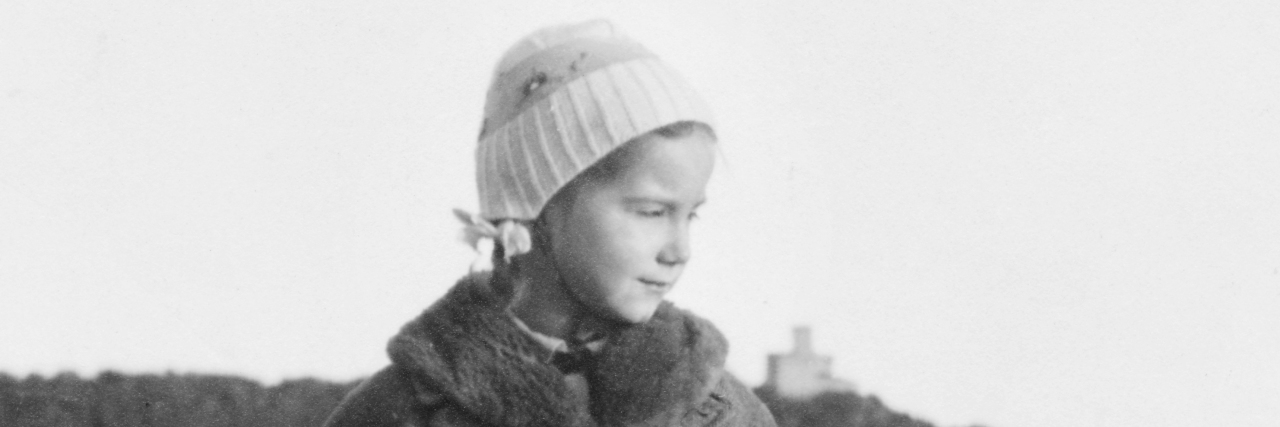My 1950s Childhood as the 'Weird' Kid With Undiagnosed Autism
Maybe it was a good thing that no one knew about autism in 1942, the year I was born. There was no word or explanation for autistic behavior other than “weird” or “strange,” or worst of all, “different.” I know other people thought I was strange. My mother called me “antisocial.”
And she was right. I was. I didn’t enjoy the company of other children, with one or two exceptions. Those girls might also have been labelled “weird,” and my mother rejected them as “unsuitable” friends. Most of the “suitable” girls had interests I couldn’t comprehend – horses when they were young, pop singers or boys as they grew older. Hanging out at the swimming pool – looking for boys. Their parties were painful to attend and I usually ended up in a corner somewhere, my nose in a book, which I paid for later if my mother found out.
I always had my nose in a book. Reading was my lifeline. I read in the bathtub, at the dinner table (that wasn’t tolerated) under the bedcovers with a flashlight, and out in the woods near an abandoned horse stable that was my hideout. At recess, I read behind the softball backstop until the nuns found me and made me play four square. I had a book on my lap during reading class because I had already read the third-grade reader through the first day of school. I read to try to make sense of a world that seemed beyond my ability to understand. People seemed strange to me and I hoped reading about their habits and hopes and motivations might help me survive.
Rather than trying to be like other girls, my role models were the heroes in children’s books. Most of them were also oddities — from Anne of Green Gables who was teased because she was an orphan with carroty hair, to Alice who broke all the rules in Wonderland, to Laura Ingalls, a tomboy at a time when girls were supposed to be proper, to Madeline in Paris, thinking outside the box, to Ferdinand, the young bull who liked to sit quietly and smell the flowers.
There was one thing these misfits had in common. They were brave, noble and caring, protecting the vulnerable, facing down bullies, standing up for right even when it got them into trouble. Even in hard circumstances, when everyone they knew disapproved of them, they followed their conscience. My favorites were those clear-eyed visionaries who looked at the world and saw the best it could be.
I tried hard to follow their example. I stood up to the bullies — and was punished for it. I defended the third graders who had their Halloween candy stolen by the big boys — and got no thanks, except from the little boys. I befriended the girls no one else loved — and was shunned by the popular girls as a result.
You could say that by basing my actions on fictional characters, I was out of touch with reality. Perhaps I was. Along the way, I bumped up against reality many times and took some pretty hard knocks from it, too. Still, I felt then, as now, that too much adherence to reality results in conformity, cowardice and a tawdry lifestyle. I wanted to be better than that. For whom were these books written, if not for me?
Getty image by Lady-Photo.

